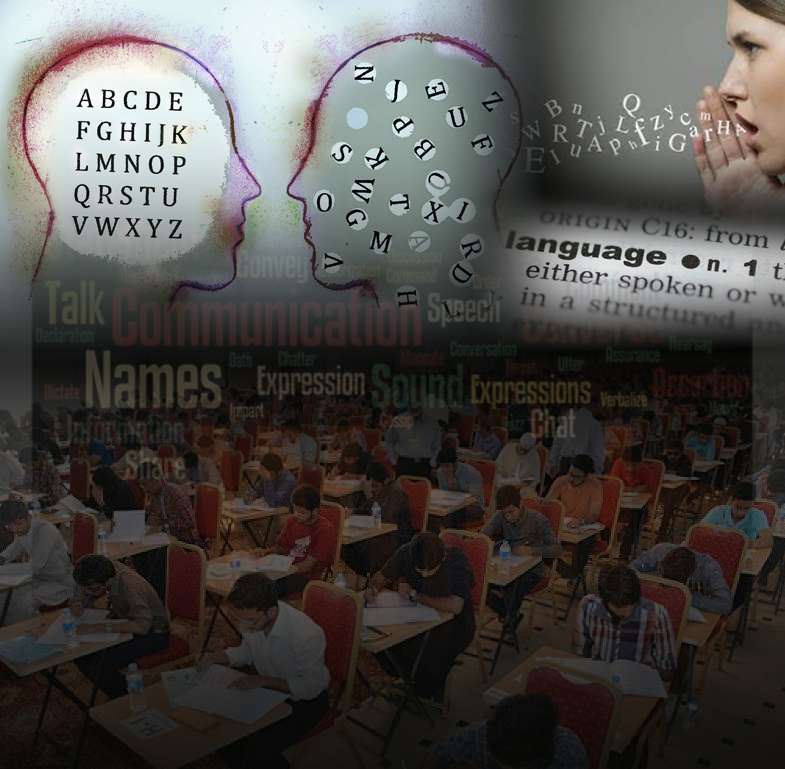According to a report by the Daily Express Karachi, the examination results of intermediate-level students in Karachi are depicting a significant educational decline. Alarming and surprising facts have emerged in this regard. These facts reveal that thousands of students at the intermediate level in Karachi are failing in Urdu and English papers. According to statistics, this year over 33,000 students failed in the Urdu subject and more than 36,000 in English across all faculties of intermediate. Last year, 20,000 students of arts, commerce, and science failed in Urdu and 29,000 in English. This situation has raised serious questions about the quality of education in Karachi’s government colleges.
When Express’s correspondent contacted Professor Dr. Sarosh Lodi, the Vice-Chancellor of NED University, he stated that the decline in educational standards is due to the majority of teachers not properly teaching students. Furthermore, the standard of teachers themselves is also low. Naseem Memon, Chairman of the Karachi Inter Board, mentioned that students are also not preparing properly. They perceive linguistics to be easy, but teachers are also to blame. Professor Irfan Shah from Siraj-ud-Daulah College noted that students do not attend classes and rely on coaching centers. Then, the copies of intermediate students are given to O-Level teachers to check, who do not understand the difficulties of intermediate students. (Daily Express, April 1, 2023)
There was a time when the majority of students at the matriculation and intermediate levels used to fail in subjects like mathematics, physics, biology, accounting, and economics because these subjects were technical, and those students who did not comprehend these subjects could hardly pass in these subjects. But now, the situation has become such that thousands of students in a city like Karachi are failing in Urdu and English.
Karachi is no longer just a city of Muhajirs; it is also home to Pathans, Punjabis, Sindhis, Baloch, and Saraikis, yet 42% of Karachi’s population still consists of Muhajirs, and the majority of them have Urdu as their mother tongue. In this context, the failure of thousands of students in Urdu means they are failing in their mother tongue. Forget English, they don’t even know their mother tongue, the language they have been hearing since the time they were in their mother’s womb, the language in which they converse and dream. Seen in this context, then the question arises whether have we started producing mute generations.
If you see, a person’s entire life revolves around language, and God has bestowed a privilege upon language. God is such a creator that He could have created the universe in thousands of ways, but He chose to create it by saying “Be,” (Kun) and the entire universe came into existence. God sent down 124,000 prophets, and each prophet had a language. God revealed the Quran, Torah, Psalms, and Gospel. Hindus believe that the Vedas are also divine scriptures, and the Gita is one of the inspired books. All these books demand proficiency in their respective languages for understanding.
If you want to understand Rumi, you need to learn Persian. If you want to understand Socrates, Plato, and Aristotle, you at least need to know Greek or English. High-level English is required to read and understand Shakespeare. Without proficiency in Urdu, you cannot understand Mir, Ghalib, or Iqbal. Moreover, without grasping the tradition of Ghazal you cannot even understand good Indian film songs from the 1960s, 1970s, and 1980s.
Experts have set a standard for linguistic proficiency: you should be able to read, understand, and enjoy poetry in your mother tongue. Now, the issue is that not just the students at the matriculation or intermediate level, but even the vast majority of students at the MA level cannot properly read or understand high poetry in their mother tongue. Those whose mother tongue is Urdu cannot read Mir, Ghalib, or Iqbal properly. Those whose mother tongue is Sindhi cannot understand or enjoy Shah Latif, let alone read his poetic texts correctly. Those whose mother tongue is Punjabi are deprived of the ability to read Waris Shah and Bulleh Shah properly.
According to research, people who regularly read newspapers have a vocabulary consisting of 800 to 1,000 words. People who do not read newspapers or do not read them regularly have an even smaller vocabulary. Currently, in America and some European countries, there are chimpanzees who recognize 800 to 1,000 words with the help of symbols. This means that our newspaper readers here have a vocabulary level equivalent to that of chimpanzees, and those who do not read newspapers have linguistic abilities even lower than monkeys. Thus, the issue is not just with the intermediate students of Karachi; it is a national problem.
Dear TNT Reader,
At The News Tribe, our mission is to bring you free, independent, and unbiased news and content that keeps you informed and empowered. We are committed to upholding the highest standards of journalism, as we understand that we are a platform for truth.
Apart from independent global news coverage, we also commit our unique focus on the Muslim world. In an age marked by the troubling rise of Islamophobia and widespread misrepresentation of Muslims in Western media, we strive to provide accurate and fair coverage.
But to continue doing so, we need your support. Even a small donation of 1$ can make a big difference. Your contribution will help us maintain the quality of our news and counteract the negative narratives that are so prevalent.
Please consider donating today to ensure we can keep delivering the news that matters. Together, we can make a positive impact on the world, and work towards a more inclusive, informed global society.
Donate Monthly Subscription Annual Subscription





